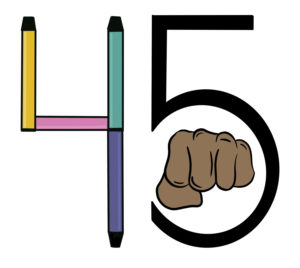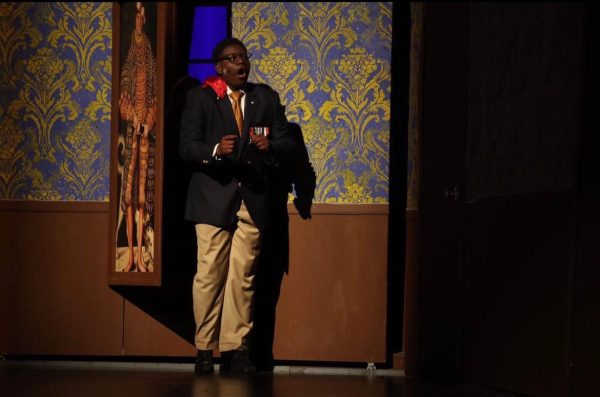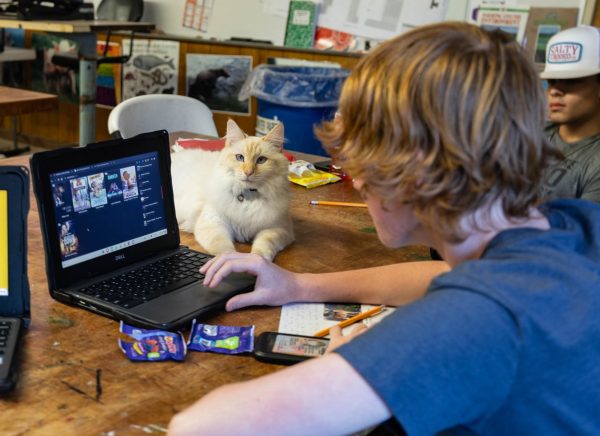Burnouts have bad turnouts
Teacher recounts experiences with overworked students
October 14, 2021
It’s one in the morning. You just finished your dreadful math homework, read the last chapters of a grueling novel assignment and studied for both your science and Spanish tests that, of course, they scheduled for the same day. All of this seemingly unending homework was endured after a two hour practice or maybe a shift at work.
Finally, it’s time to go to sleep and get well rested for tomorrow’s demanding schedule. What seems like a couple minutes of much needed sleep passes by, and your eyes suddenly open wide, and your body jolts upward. You forgot to read the 20 pages out of Chuck Zach’s history textbook for your quiz tomorrow. Thinking that the quiz was still a problem for the future, you are surprised to see it is already time to get ready for school leaving you totally unprepared and anxious.
Due to the amount of stress and limited time to study, what you lost so much sleep for felt like a complete waste of energy. Everything you studied for last night seemed to be thrown out of your head the moment you laid your eyes on the quiz. Now comes the part that you dreaded the most, Mr. Zach’s quiz that you are totally unprepared for.
As you walk into his class with the weight of school, family, friends and extracurricular activities on your shoulders, Zach does not turn a blind eye to it. Instead, he takes a moment to check in on you because he can recognize a student who feels burned out in their life and knows the impact of this feeling on teenage minds.
“I am always concerned about kids being burned out and overworked,” Zach said. “Sometimes it’s academics. Sometimes it’s the fact they have jobs outside of school. Sometimes it’s extracurricular activities. Sometimes it’s taking care of little brothers or sisters. There’s a lot of factors that we don’t consider when you think about the fact that kids seem to be at breaking points.”
Zach is aware that students often have more on their plate than just school which already can be overwhelming. With so much going on in student’s lives it is no surprise to him that burn outs can be common and lead to more problems.
“I think [burn outs] lead to mental exhaustion which ultimately leads to physical exhaustion,” Zach said. “I have no doubt that there is a connection between [mental illnesses and burn outs].”
Zach has deep compassion for students battling with mental breaking points because of his personal experience dealing with them. He has seen that burn outs can ultimately lead to suicide, explaining why he turns his attention to struggling students.
“This is my 28th year in the classroom,” Zach said. “For more years than not, I’ve had kids that I taught or that I know who have taken their own lives, including several I was really close to. Once that happens, you start to be really aware of the fact that teenagers are going through things that adults don’t always pay attention to until it’s too late. It’s always a thing in the back of my mind, kind of gauging how kids look, act, etc. When they walk in the classroom, are they at a place where they’re showing that they’re getting close to a breaking point?”
Though telling overloaded teenagers that someone notices and cares for them can help in improving their mental health, Zach has found another solution that can temporarily relieve stress from his students to walk the talk.
“If I identify kids that I think are having those kinds of issues that day, I usually try to find a way to release some of the pressure,” Zach said. “That just means I’ll act like I forgot to make a copy of a quiz so that they don’t have to take a quiz that day. Just as one thing to take a little bit of weight off and maybe release some of the tension that’s going on. Even though it’s a little thing, sometimes it’s that little thing that keeps things from careening out of control.”
There are more people out there than just Zach who are cheering students on and understanding that it is OK to reach points in life where enough is enough, but that does not mean to give up. Mr. Zach has plenty of advice for anyone who thinks otherwise.
“You don’t want to say, ‘Don’t take school seriously,’ or, ‘Don’t take your other responsibilities seriously,’ because we all do,” Zach said. “We all have to, but I think it’s important to recognize when you’ve taken on too much. When it’s time to back off a little bit and say, ‘I’ve got to have a mental health day. I’ve got to take a break away from it for a little while to at least let myself recalibrate and start over again.’ It’s a tough balancing act. I think one of the hardest things that teenagers deal with is time management and all of the stresses that come when they’re not really equipped to deal with them.”





















